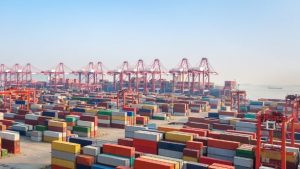
free-trade-zones
Free Trade Zones (FTZs) have been instrumental in driving economic growth and facilitating international trade. However, with the growing concern for sustainable development, there is a need to strike a balance between economic growth and environmental sustainability within these zones. In this article, we will explore the crucial intersection of sustainable development and Free Trade Zone Malaysia, focusing on how these zones can contribute to both economic prosperity and environmental responsibility.
1. Green Infrastructure and Energy Efficiency
To promote sustainable development, FTZs can prioritize the integration of green infrastructure and energy-efficient systems. Implementing renewable energy sources, energy-saving technologies, and sustainable water management not only reduce the environmental impact but also lead to cost savings for businesses operating within the zones.
2. Waste Management and Circular Economy Practices
Efficient waste management systems and the adoption of circular economy principles can minimize waste generation and maximize resource utilization within FTZs. By encouraging recycling, reusing, and reducing waste, these zones can contribute to a more sustainable approach to industrial operations.
3. Environmental Compliance and Regulations
Strict adherence to environmental regulations and compliance with international sustainability standards are vital aspects of sustainable development within FTZs. Setting clear guidelines and monitoring mechanisms ensures that businesses operate responsibly and minimize their environmental footprint.
4. Biodiversity Conservation and Green Spaces
Integrating green spaces and conserving biodiversity within FTZs can enhance the overall environmental quality of the zones. Creating natural habitats, planting trees, and preserving local flora and fauna demonstrate a commitment to sustainable development and can positively impact the well-being of the community.
5. Promoting Sustainable Transport
Encouraging the use of sustainable transport modes, such as electric vehicles and public transportation, can reduce carbon emissions within FTZs. Establishing efficient transportation systems and promoting eco-friendly commuting options for employees contribute to the sustainability goals of the zones.
6. Stakeholder Collaboration and Awareness
Engaging stakeholders, including businesses, local communities, and governmental bodies, in sustainability initiatives is essential. Building awareness about sustainable practices and fostering collaboration ensures collective efforts towards achieving sustainability goals within FTZs.
7. Carbon Neutrality and Offset Initiatives
Working towards carbon neutrality by investing in carbon offset projects can be a viable approach for FTZs. Supporting renewable energy projects or reforestation initiatives can help balance carbon emissions generated within the zones, aligning with global sustainability objectives.
8. Monitoring and Reporting Sustainability Performance
Regular monitoring and transparent reporting of sustainability performance metrics enable FTZs to track progress and identify areas for improvement. Publicly sharing this data encourages accountability and motivates businesses to continuously work towards sustainability.
Conclusion
Achieving sustainable development within Free Trade Zones is a complex but necessary task to ensure a harmonious balance between economic growth and environmental responsibility. By adopting sustainable practices, integrating green technologies, promoting eco-friendly transportation, and engaging stakeholders, FTZs can be pioneers in driving sustainable growth while mitigating environmental impact. The future success of Free Trade Zones hinges on their ability to embrace sustainability and effectively contribute to a greener and more prosperous world.
No responses yet